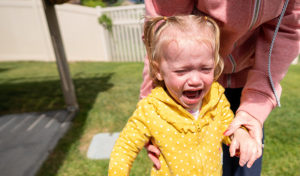An HOA home daycare can be very convenient, especially for parents living in the community. But, not everyone agrees with a daycare operating out of the HOA, and some might even question whether it is allowed.
HOA Home Daycare: Rising Popularity and Its Effects
There are 74.4 million children in the United States, with 24.9 million aged 0-5 and 24.4 million aged 6-11. As the number of children continues to grow each year, the demand for childcare increases, especially for households where all parents work.
But, there are not enough childcare facilities today. And, if there are any, many parents find that they are located too far from their home or priced too high. This has led to the heightened emergence of home daycares. People have started running daycares out of their homes to keep up with the demand. Daycares in HOA communities, though, are not always well-received.
There are a few reasons why homeowners associations don’t tend to favor daycares:
 Increased vehicle traffic as a result of parents dropping off and picking up their children at certain times of the day;
Increased vehicle traffic as a result of parents dropping off and picking up their children at certain times of the day;- More noise coming from the children playing, crying, or shouting;
- Large play structures that interfere with the clean and uniform appearance of the neighborhood;
- An influx of strangers (i.e., parents who are not part of the HOA);
- Children (including non-members) using the common elements and amenities; and/or,
- Advertising signage that doesn’t look appealing or that violates the community’s display rules.
What Do Zoning Laws Say?
When determining whether or not HOA home daycares are allowed, the first place to look is zoning laws and ordinances, whether at the state or local level. It may already be a non-HOA issue if the law prohibits homeowners from running a business out of their homes.
Keep in mind, though, that not all zoning laws are cut and dry. Some may have exceptions to the rule, such as permitting home businesses with only one employee. Additionally, it is essential to understand how your state and local zoning laws define “home business.”
What exactly constitutes a home daycare? And does the one in your HOA meet this definition? Because these laws can vary immensely from one county to another — and even one city to another — homeowners and HOAs should read up on their local ordinances.
Furthermore, just because zoning laws allow a homeowner to operate a daycare doesn’t mean there are no other rules at play. Even if the local government permits home businesses, an HOA may still have regulations that prohibit them. And, if the law does not prevent HOAs from imposing such a regulation, then the HOA regulation holds up.
State Laws Protecting Daycare in HOA Homes
Homeowner associations can generally impose rules that restrict or prohibit home daycares. But, there are a few states with laws that prevent HOAs from enacting such ordinances. And, with how things are going, it would not be surprising if more states follow soon.
California
It is common for HOAs to prohibit the commercial use of homes or the use of homes other than for single-family purposes. However, the California Legislature declared that daycare homes are exempt from such restrictions, even if they appear in an association’s CC&Rs.
Health and Safety Code Section 1597.40 states that an association may not expressly or indirectly restrict, prohibit, or limit the use of a property for a daycare in the HOA community. As per the Code, a family daycare home is defined as a home that regularly provides care, supervision, and protection to 14 or fewer children and is operated in the provider’s own home while the parents or guardians are away for less than 24 hours per day.
Colorado
In 2020, Governor Polis passed Senate Bill 20-126, which effectively amended Section 38-33.3-106.5 of the Colorado Common Interest Ownership Act. According to the new law, an association may not prohibit the operation of a licensed family childcare home. And while the subsection does not override any architectural rules, the HOA must make reasonable accommodations for childcare fencing requirements. The subsection also does not override any HOA noise, parking, and landscaping rules.
Washington
Currently, Washington law already prohibits cities and counties from enacting zoning laws that would prevent the use of a residential dwelling as a home daycare. However, the law does not apply to homeowners associations. With the introduction of House Bill 1199, that may soon change.
Representative Tana Senn, who sponsored the bill, recognized the need for more childcare facilities in the state. The bill would effectively prevent associations from prohibiting an HOA home daycare in the community. The bill has already passed through the Washington House of Representatives, and the Senate is currently considering it.
Imposing Reasonable Rules Around HOA Home Daycares
If an HOA decides to permit home daycares, it is best to enact rules to ensure such operations stay within control. Even if an HOA has no option but to permit daycares, state laws usually still allow associations to enforce reasonable rules.
These rules should include the following:
 Licensing. A homeowner must secure proper licensing from the appropriate government agency to run an HOA home daycare. The homeowner must also renew this license and any relevant paperwork as needed. Compliance with state and local laws is also a must.
Licensing. A homeowner must secure proper licensing from the appropriate government agency to run an HOA home daycare. The homeowner must also renew this license and any relevant paperwork as needed. Compliance with state and local laws is also a must.- Insurance. Daycare operators must obtain liability insurance and maintain their policies every year and show proof of their insurance coverage to the association.
- Indemnification Agreements. Another way to protect the HOA is to have daycare operators write and sign indemnification agreements. Parents who wish to have daycare care for their children must also sign these agreements indemnifying the association.
- Rules Still Apply. Even if a homeowner runs a daycare, they must still abide by the association’s rules. After all, their facility is still a home within the HOA community. This includes complying with architectural rules, nuisance ordinances, parking rules, and the like.
The Final Say
Permitting an HOA home daycare in the community comes with certain risks. But, some associations can’t legally prohibit them. As such, it is important for HOA boards to develop reasonable rules that limit the association’s exposure to liability. As always, it is best to seek the help of a lawyer or management professional.
Cedar Management Group provides expert management services, including legal assistance, to homeowners associations. Call us today at (877) 252-3327 or contact us online to learn more about what we do!
RELATED ARTICLES:
- HOA Backyard Rules: What Can And Can’t Homeowners Do
- Worker Compensation Insurance: Will Your HOA Benefit From It?
- What Is An Architectural Review Committee? And What Does It Do For An HOA Community?






